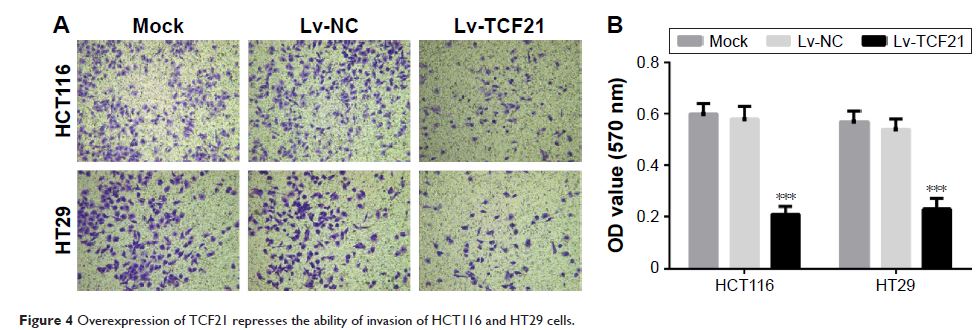109568
论文已发表
注册即可获取德孚的最新动态
IF 收录期刊
- 3.4 Breast Cancer (Dove Med Press)
- 3.2 Clin Epidemiol
- 2.6 Cancer Manag Res
- 2.9 Infect Drug Resist
- 3.7 Clin Interv Aging
- 5.1 Drug Des Dev Ther
- 3.1 Int J Chronic Obstr
- 6.6 Int J Nanomed
- 2.6 Int J Women's Health
- 2.9 Neuropsych Dis Treat
- 2.8 OncoTargets Ther
- 2.0 Patient Prefer Adher
- 2.2 Ther Clin Risk Manag
- 2.5 J Pain Res
- 3.0 Diabet Metab Synd Ob
- 3.2 Psychol Res Behav Ma
- 3.4 Nat Sci Sleep
- 1.8 Pharmgenomics Pers Med
- 2.0 Risk Manag Healthc Policy
- 4.1 J Inflamm Res
- 2.0 Int J Gen Med
- 3.4 J Hepatocell Carcinoma
- 3.0 J Asthma Allergy
- 2.2 Clin Cosmet Investig Dermatol
- 2.4 J Multidiscip Healthc

已发表论文
TCF21 通过使 PI3K/AKT 信号通路失活而成为结肠直肠癌肿瘤的抑制因子
Authors Dai Y, Duan H, Duan C, Zhu H, Zhou R, Pei H, Shen L
Received 26 July 2016
Accepted for publication 19 October 2016
Published 14 March 2017 Volume 2017:10 Pages 1603—1611
DOI https://doi.org/10.2147/OTT.S118151
Checked for plagiarism Yes
Review by Single-blind
Peer reviewers approved by Dr Norbert Ajeawung
Peer reviewer comments 2
Editor who approved publication: Prof. Dr. Geoffrey Pietersz
Abstract: Colorectal cancer
(CRC) has become a major public health problem, ranking as the third most
common type of cancer. Our previous study has revealed that TCF21 is frequently
silenced by promoter hypermethylation in both CRC cell lines and primary CRC,
with TCF21 methylation being significantly correlated with lymph node invasion.
In this study, we further analyze the expression of TCF21 in CRC tissues and
investigate the role of TCF21 in CRC in vitro and in vivo. We also explore
the possible pathway regulated by TCF21. We thus demonstrate that decreased
levels of TCF21 are associated with the pathological stage, clinical stage and
lymph node metastasis, indicating a poor prognosis in CRC patients; overexpression
of TCF21 inhibits cell proliferation, migration and invasion in the colorectal
cell lines HCT116 and HT29. Furthermore, TCF21 functions as a tumor suppressor
probably through inactivation of PI3K/AKT signaling and inhibition of MMPs. Our
results suggest that enhancement of TCF21 levels may be a potential strategy to
facilitate the prevention and treatment of CRC in the clinic.
Keywords: colorectal cancer, TCF21, prognosis, PI3K/AKT signaling, MMPs
Keywords: colorectal cancer, TCF21, prognosis, PI3K/AKT signaling, MMPs
